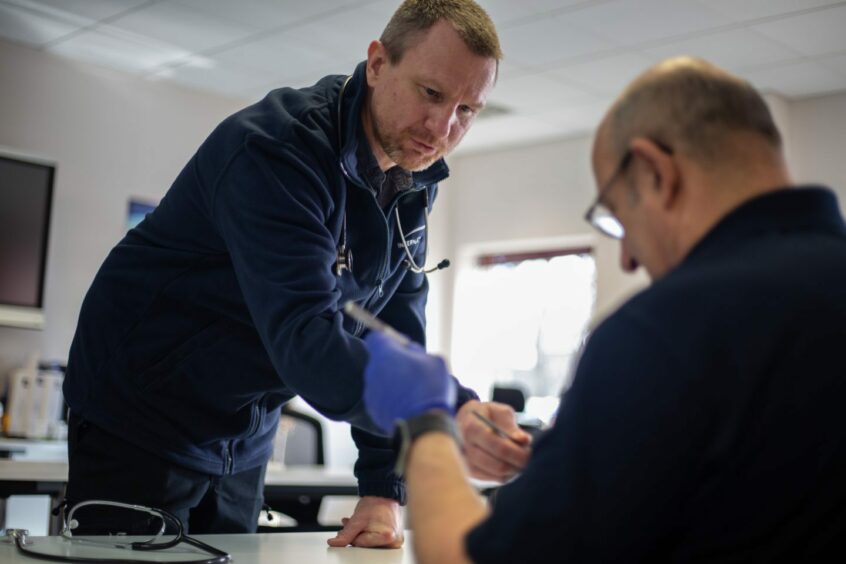
Skill fade has been defined as the decay of ability or adeptness over a period of non-use. This can apply in any walk of life – but for an offshore medic, skill fade can have serious consequences.
The biggest shock for me when I first worked as a medic offshore was to find out how little time a medic actually spends dealing with casualties.
The role of the offshore medic is a combination of different responsibilities – including occupational health and safety responsibilities– with the result that clinical exposure is not as high as I had expected when I first worked offshore.
Safety plays a huge role in the offshore industry and we would not expect medics to be dealing with severe casualties on a regular basis – but it is crucial that they are always able to deal with any eventuality that might present itself – particularly given the remote location of most offshore assets.
Over the years, we have recognised that skill fade is an important issue – and, anecdotally, we have been aware of medics who have suffered very significant skill fade.
And this is why, in International SOS, we have introduced a number of initiatives to avoid skill fade and ensure that our medics remain able to cope with any eventuality that may present itself.
The best way to tackle skill fade is through practical experience – which is why all of our medics attend an annual training course consisting both of theory-based learning and – most importantly – giving them the opportunity to be hands on in the classroom with a range of advanced training aids, where they can work on advanced life support and trauma skills using our skill stations.
They are assessed on Advanced Life Support (ALS), dealing with medical emergencies, trauma management and history taking – which is a very important aspect of any assessment.
In addition, there is always an onus on the medic themselves to ensure their CPD is up to date.
Throughout the year, we have twice weekly clinical briefings with our Medical Director, ensuring that our medics are kept up to date with the latest clinical information; and fortnightly clinical calls with our Offshore Operations Managers, all of whom are NMC trained, with skills in occupational health, industrial hygiene and trauma.
These calls cover any shared learning relating to medical, occupational health or safety issues and discussion of clinical cases.
In addition to working to prevent skill fade in our medics, we also offer them the opportunity to upskill.
For example, we have developed an Offshore Medic Diving Awareness course, designed to give offshore medics an understanding of the role of the medic on a Diving Support Vessel and an insight into the injuries and illnesses medics may encounter when caring for divers.
Offshore, a medic would be supported by a team of first aiders who require an offshore first aid ticket, following a short course – but we have found this does not necessarily equip the members of the team to assist the medic effectively. We have therefore developed a MERT (Medical Emergency Response Team) course which effectively fills the skills gap and teaches them to be a useful, valuable asset when assisting the medic in dealing with a life-threatening medical or trauma-related emergency offshore – anticipating what the medic will require to support the patient.
Recommended for you
